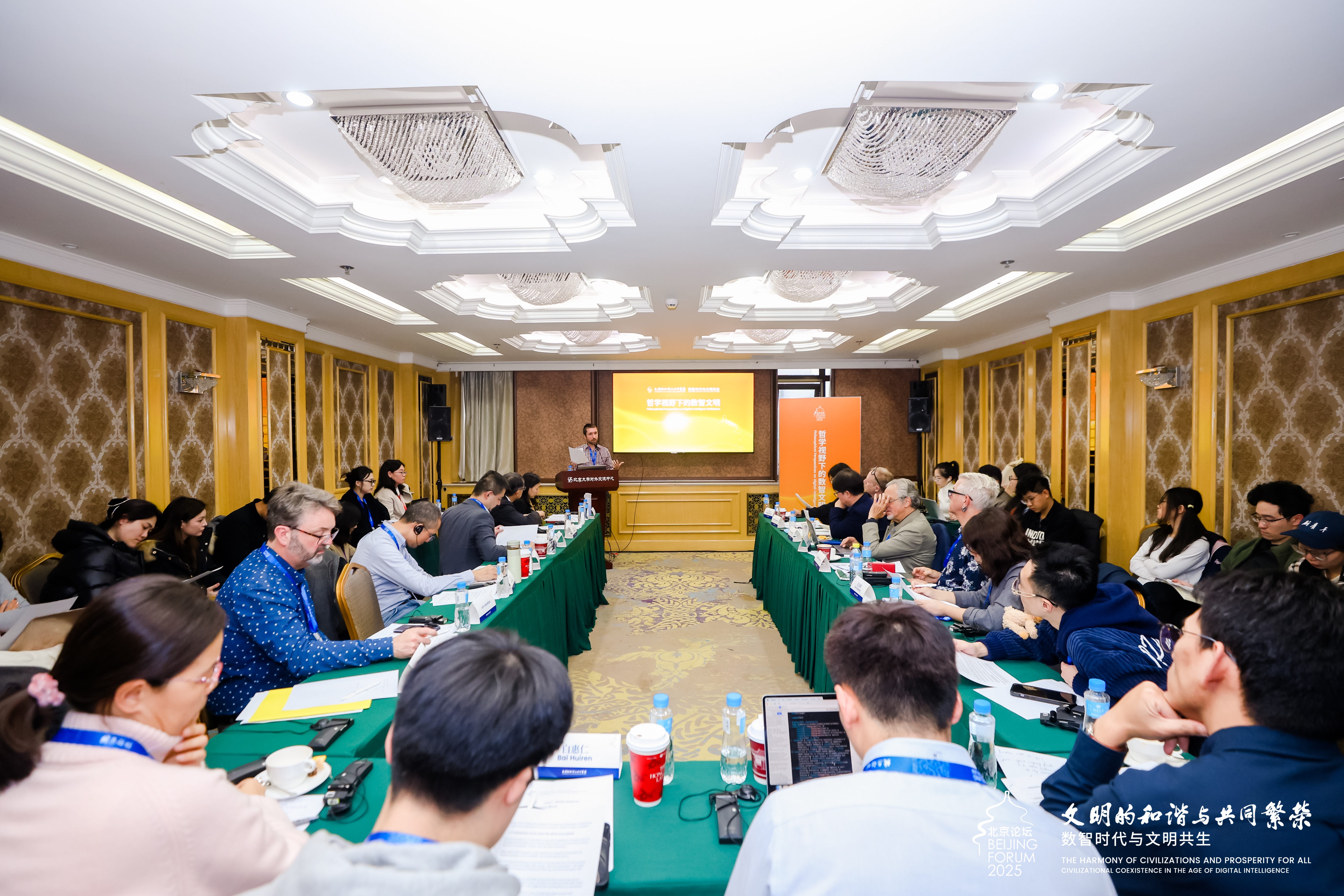 Peking University, November 13, 2025
Peking University, November 13, 2025: The Beijing Forum 2025 panel session “Philosophical Perspectives on Digital-Intelligent Civilization” was held at Peking University on November 8 and 9. Over two days, scholars from across the world gathered to discuss the consequential philosophical questions regarding the proliferation and governance of digital technology in our world today.
The session began by exploring various philosophical approaches to understanding Large Language Models (LLMs). How do we analyse LLMs? Can LLMs “know” facts? These were amongst the epistemological questions scrutinised by the speakers and audience, with L.A. Paul, Professor of Philosophy from Yale University, asserting that scholars should rethink and expand on existing concepts of knowledge.
On the topic of AI ethics and governance, Du Yanyong, Professor of School of Humanities, Tongji University, addressed the standardization of AI ethics, highlighting a global shift from theoretical principles to actionable standards, and calling for closer collaboration between ethicists and scientists, entrepreneurs, and policymakers to embed ethics into technical frameworks and ensure real-world feasibility.
Human integration with AI was also tackled. Robert Sparrow, Professor of Philosophy from Monash University, issued a stark warning against using AI as "digital companions" to combat loneliness. He argued that such "imaginary friends" are a dangerous substitute for genuine human connection, potentially reducing contact with others and underestimating the essential role of physical touch and mutual aid in human well-being. “Encouraging people to have imaginary friends is no solution to social isolation.”
Shifting to a fundamental metaphysical question, Brian Cutter, Associate Professor of Philosophy from University of Notre Dame, argued that advanced future AIs have a serious possibility of being moral patients—entities deserving moral consideration. He constructed a compelling two-pronged argument to support his statement and contended that this conclusion held water regardless of whether consciousness is reducible to physical properties or not. Therefore, he summarized that we may need to fundamentally reconsider our ethical responsibilities toward advanced AI.
From real-world to thought experiments, Sebastian Sunday Grève, Assistant Professor of Philosophy from Peking University, sought to address the fundamental question on artificial life — Can robots think? Arguing that Turing’s imitation game and Searle’s Chinese room are inadequate responses, Professor Grève proposed a modified version of this question — Can robots acquire human mindedness? — and presented an argument for robot existentialism. “Imagine an alternate history of coexistence between humans and humanoids,” Professor Grève conjectured, simulating a thought-provoking possibility of artificial life.
With lively discussions and well-researched responses, this panel session has provided a deeply insightful and multifaceted exploration of the intersection between philosophy, digital technology, and artificial intelligence.
Written by: Chloe Tan Xuan En, Lee Jie Xin, Khor Hui Min
Edited by: Chen Shizhuo
Photo by: Office of International Relations
